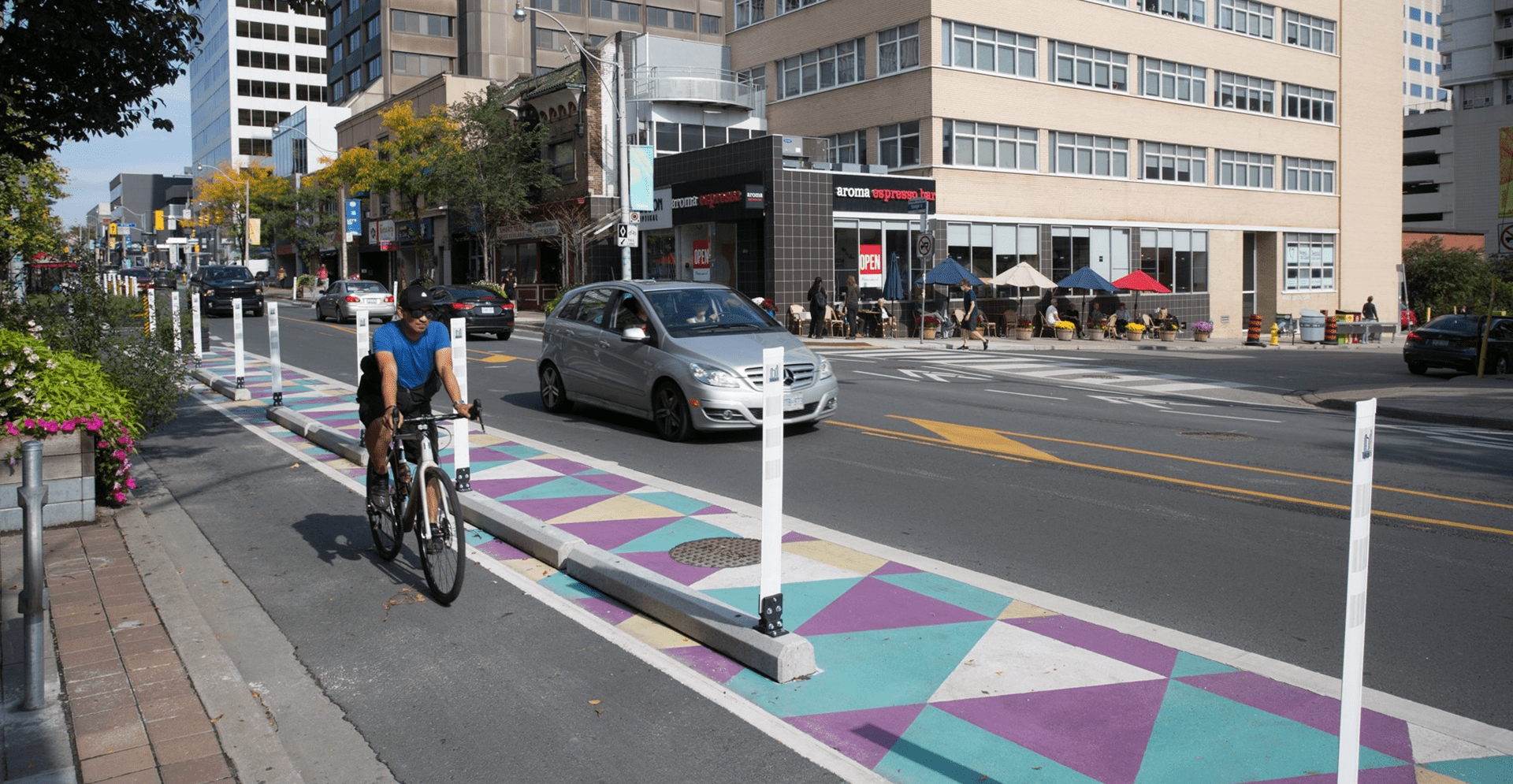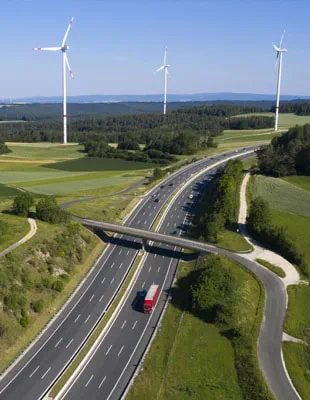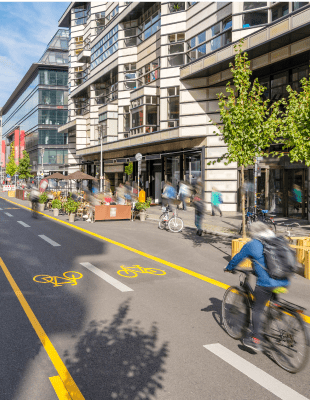Table of Contents
The challenge
In response to COVID-19 restrictions, the rapid transformation of one of Toronto’s major Midtown arteries was required to improve quality of life.
100%+
Yonge Street is one of the main north-south arterial corridors in the heart of Midtown Toronto, serving various business improvement areas (BIAs), neighborhoods, and key destinations. The corridor has complex mobility demands, including transit, walking, cycling, vehicles, loading and parking.
Repurposing one travel lane in each direction to add protected bike lanes, cafés and parking spaces as a COVID-19 response initiative required a comprehensive stakeholder engagement program to build community support. The pilot project was further complicated by a compressed timeline of six months, within which we evaluated existing conditions, consulted the public and prepared design drawings through to installation.
The solution
Our context sensitive design re-purposed vehicle lanes to create protected bike lanes, curb lane cafes, and all-day parking to support businesses.
60-80%
increase in total pedestrian traffic
As the City’s Prime Consultant, we carried out extensive stakeholder consultations, completed a topographic survey, and a corridor comparison study and safety review.
We undertook a highly collaborative design process to create a plan reflective of the City’s objectives and the needs of the businesses and residents in the area. We developed an assumptions-constraints map displaying parking, loading, transit and traffic infrastructure to expedite coordination with BIAs. Working closely with the Toronto Transit Commission and Wheel-Trans, we identified accessible pick-up and drop-off zones to ensure improved accessibility. This theme was carried throughout the design via raised loading platforms and bus stops to minimize conflicts between cyclists and buses and improve curb access.
Corridor beautification was a key objective that was achieved through artistic curb extensions, buffers, and planters. Customized pavement markings for each of the BIAs brought this objective to life, contributing to the unique identity of each business area.
The project, which was created as a 12-month pilot, has since received City Council approval, making the temporary transformation of Yonge Street permanent.
The impact
The project led to increased dining capacity and cyclist and pedestrian traffic along the midtown corridor while creating space for public transit.
76%
The Midtown Complete Street Pilot dramatically enhanced cyclist and pedestrian use and led to the capacity relief of the north-south Line 1 subway. The project supported outdoor dining along Yonge Street, creating an oasis for residents and businesses navigating life during the pandemic.
The project’s social, economic and environmental impacts are reflected in the changes to the street use:
- Total pedestrian volume increased by 60-80%.
- The number of people cycling on Yonge Street has increased by 100% on average along the corridor.
- There is a high satisfaction level among Yonge Street’s users, with 76% of on-site survey respondents saying they felt that the pilot fulfilled the project's goals.
The experience of traveling along Yonge Street has changed dramatically due to this project, as pedestrians are buffered from adjacent motor vehicles by bike lanes, more cafés are provided in the summer months, cyclists have dedicated space on the roadway, and full-time parking is available along the corridor.
Not done reading?
This also might be interesting for you
- Related Projects
- Related Insights
- Related Blogs










